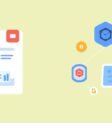
AI agents are transforming the process of daily planning for individuals and professionals alike. This article explores how AI agents enhance personal productivity, the technology behind them, their capabilities for scheduling and organization, the must-have features in AI planners, practical steps for setting up your first AI agent, tips for maximizing efficiency, and what the future holds for AI in daily planning. Read on to discover how AI agents for daily planning can take your productivity to new heights.
The Impact of AI Agents on Daily Planning
AI agents are rapidly reshaping the way individuals approach daily planning, offering intelligent automation that alleviates the burden of routine decision-making. By integrating advanced algorithms and data analysis, these digital assistants can organize schedules, prioritize tasks, and even adapt plans in real time based on changing circumstances. This transformation not only increases efficiency but also empowers users to focus on higher-value activities, delivering a level of personalization and responsiveness that traditional planning tools simply can’t match. As AI becomes more accessible, its role in optimizing daily routines and boosting personal productivity is becoming an indispensable asset for professionals and everyday users alike.
What are AI Agents? The Technology Behind Smart Daily Planning
AI agents are software programs designed to autonomously perform tasks, make decisions, and interact with their environment using artificial intelligence techniques. At their core, these agents perceive inputs from their surroundings—such as user commands, calendar updates, or real-time data—and process this information to achieve specific objectives. Unlike traditional software that follows rigid, predefined instructions, AI agents use sophisticated algorithms, including machine learning and natural language processing, to learn from experience, adapt to new situations, and improve their performance over time.
Modern AI agents are typically composed of several integrated components: sensors for gathering input (like speech recognition or email parsing), reasoning engines to evaluate options, and actuators to execute actions (such as sending reminders or booking appointments). Their ability to merge and process data from multiple platforms enables them to deliver highly personalized and context-sensitive assistance, making them revolutionary tools in daily organization and planning.
The broad adaptability of AI agents is fueling a shift toward smarter, more efficient workflows in both personal and professional contexts. To delve deeper into the foundational elements of AI agent technology, you may find the Step-by-Step Guide to Building a Multi-Task AI Agent helpful.
How AI Agents Revolutionize Scheduling and Organization
AI agents are revolutionizing daily productivity by managing complex scheduling tasks with efficiency and precision. Common virtual assistants such as Google Assistant and Apple’s Siri can automatically add appointments to calendars, send reminders for deadlines, and propose optimal meeting times by analyzing personal and professional commitments. Enterprise solutions like Microsoft Outlook’s Cortana integration further streamline the process by scanning emails, suggesting available times, and sending out invitations while tracking RSVPs.
AI-powered scheduling tools such as Calendly and emerging platforms like TheAgentBot automate the cumbersome process of coordinating meetings. They incorporate user preferences—including working hours and blackout periods—and propose appropriate time slots for all involved parties, significantly reducing the back-and-forth typically associated with meetings. These tools also proactively handle last-minute changes by rescheduling or canceling events as needed.
Beyond meetings, AI agents can manage tasks like medication reminders, travel itineraries, and follow-up notifications. Advanced platforms, some of which mimic human-like communication in email correspondence, are beginning to take on the role of executive assistants for digital scheduling. For a detailed look at advanced agent capabilities, check out the Top 10 Features of TheAgentBot.
Key Features to Look for in an AI Daily Planning Tool
Choosing the right AI agent for daily planning requires careful evaluation of several essential features:
- Adaptability: The best AI planners adapt to changing schedules, shifting task priorities, and your individual work style. They utilize machine learning to refine their recommendations as they learn more about your habits.
- Seamless Integration: Effective AI tools integrate smoothly with dominant calendars, email clients, project management systems, and communication platforms. Synchronization across tools reduces data silos and ensures consistent updates.
- Personalization Options: Top-tier AI planners let you tailor notifications, set work and break hours, and define productivity goals, giving you flexibility to match your habits and needs.
- Robust Security Measures: Given the sensitive nature of scheduling data, prioritize tools with end-to-end encryption, GDPR compliance, transparent privacy policies, and advanced permission controls.
By focusing on these qualities, users can select AI planners that offer a balance of productivity, security, and seamless workflow integration. For readers interested in tool integrations, the article TheAgentBot Integrations: Tools You Can Connect Today explores how various platforms can augment your daily planning experience.
Setting Up Your First AI Agent for Daily Planning
Ready to harness the power of AI agents for daily planning? Here’s a step-by-step guide:
- Choose the Right AI Agent: Identify an AI agent that matches your planning needs—Google Assistant, Microsoft Copilot, Reclaim, Motion, or a platform like TheAgentBot. Evaluate platform compatibility, privacy standards, and specific features like task automation or calendar syncing.
- Installation Process: Download and install your chosen AI agent from an official source. Some platforms offer browser extensions or web versions for easy access and setup.
- Initial Setup and Permissions: On first launch, grant essential permissions—calendar, contacts, reminders, and notifications—to enable core planning features. Exercise caution and only provide necessary access rights to preserve your privacy.
- Customization for Daily Planning: Adjust features like work hours, break time, meeting duration, and notification settings. Sync with existing calendars or task managers to create a unified productivity ecosystem.
- Personalize Your Productivity Flows: Use built-in templates or create custom workflows for recurring and one-off tasks, meetings, or reminders. Provide training examples to help the agent refine its scheduling logic.
- Review and Iterate: Evaluate your AI agent’s ongoing performance, review analytics on planning efficiency, and fine-tune preferences. Frequent feedback and iteration help the system adapt to changing needs.
If you’re interested in a beginner-friendly setup, see the Getting Started with TheAgentBot: A Beginner’s Guide for practical setup tips.
Maximizing Productivity with AI Agent Planning
To make the most of your AI-powered planning assistant, start with clear and actionable goals. Break larger projects into discrete, manageable tasks within your planner, and prioritize these items based on deadlines and significance. Use automated reminders and scheduling features to reduce manual input and the risk of missing important commitments.
For consistency, build a daily review habit. Let your AI agent summarize the day’s achievements, flag outstanding tasks, and recommend priorities for tomorrow. Synchronize your planning assistant across all devices for real-time updates and truly mobile productivity.
Analytics tools can reveal productivity patterns and highlight improvement areas—use this feedback to optimize your workflow further. Customizable templates for regular activities enhance efficiency, while sharing capabilities keep your team organized and informed.
Regularly update your preferences and supply direct feedback to your AI assistant to continually refine its recommendations. Over time, this iterative approach transforms your AI assistant into an indispensable and highly personalized productivity partner.
For ideas on optimizing agent workflows without technical expertise, read about How to Train an AI Agent Without Writing Code.
The Future of AI Agents for Daily Planning
Artificial intelligence agents are poised to play an even larger role in personal productivity as technological advancements continue. Enhanced natural language understanding will enable AI agents to interpret intent and context with greater nuance, making interactions seamless. Multimodal AI—processing data from text, voice, images, and even gesture—will expand the reach and relevance of agents across devices and platforms.
Deeper personalization, powered by continuous learning from your routines, will enable AI agents to adapt scheduling, reminders, and task management to fit your unique preferences. Integration with IoT devices could soon enable agents to orchestrate not only your digital plans but also your physical environment.
Looking ahead, proactive assistance will become the norm. AI agents will not just respond to commands but anticipate needs, automate repeated tasks, and suggest optimized time-management strategies based on real-time data. Meanwhile, enhanced privacy and on-device processing will align with rising expectations around confidentiality and data security.
With these advancements, AI agents for daily planning are set to become essential partners in achieving personal and professional goals more efficiently than ever before. For further exploration of real-world outcomes, you might be interested in this Case Study: How One User Doubled Productivity Using TheAgentBot.
Conclusion
AI agents for daily planning offer unprecedented levels of automation, personalization, and efficiency, freeing users from routine decisions and repetitive tasks. By selecting the right tool, setting it up to match your needs, and learning how to maximize its features, you can transform your approach to productivity. As the technology evolves, these AI-driven assistants will only become more central to our daily routines—empowering users with smarter planning and greater control over their time.
For those ready to try it, start today and experience the AI-powered evolution of daily planning.






